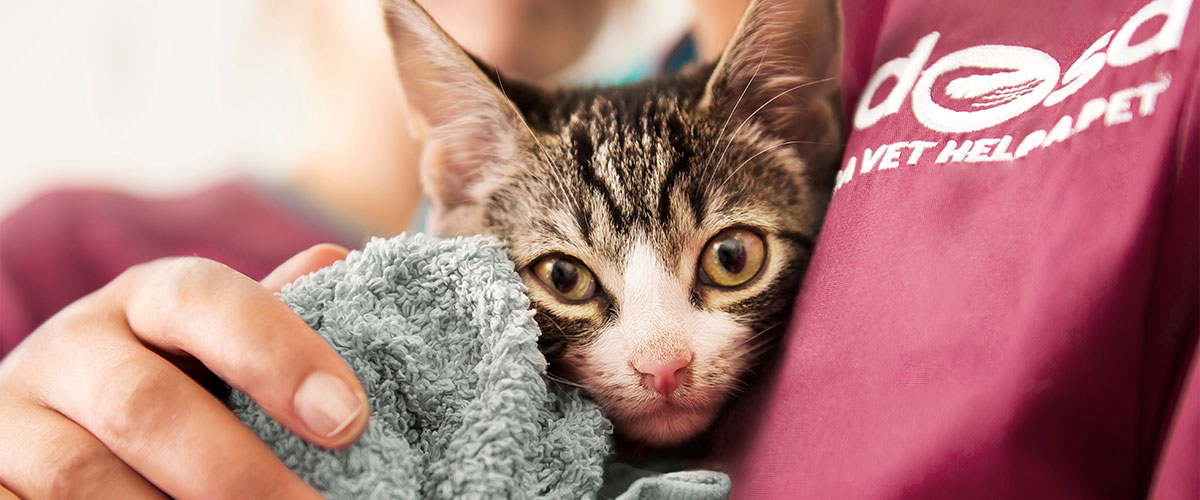Allergic reactions in cats
Overview
- Allergic reactions range from mild to severe and in some cases, can be life threatening.
- Cats can have an allergic reaction to almost anything, but the most common triggers include insect stings, snake venom and certain medications.
- Contact your vet immediately if your cat is having an allergic reaction.
- Treatment for allergic reactions is usually very successful, if the symptoms are caught early.
General information
There are many different things that cats can be allergic to, some of the most common include:
- Insect stings (such as bees and wasps)
- Snake bites
- Food
- Certain medications or vaccinations.
Some allergic reactions cause mild symptoms, but others can be very severe, and can cause severe symptoms (anaphylaxis) within just a few minutes (similar to the life-threatening reaction some people have with nuts). Reactions tend to be most severe if they affect the throat/neck and breathing.
Some allergic reactions get worse each time they happen, so if you know your cat is allergic to something, it’s important to keep them protected and get help quickly if you see one developing.
Ongoing allergies - other less urgent types of allergy, for example skin allergies and flea allergies tend to cause much more mild symptoms that come and go over time.

This cat developed a swollen mouth after he was stung by a wasp
Symptoms
If your cat is allergic to something, they are likely to develop some of the following symptoms after coming into contact with it:
- Swelling and redness around the affected area
- Itching
- Drooling
- Rashes/ spots
Severe allergic reactions or anaphylaxis can cause:
- Severe swelling to the lips and face
- Breathing problems
- Limping (if their foot/leg is affected)
- Vomiting and diarrhoea
- Collapse
When to contact your vet
If your cat is having a severe allergic reaction (anaphylaxis), give first aid and contact your vet immediately. If your cat is having a mild allergic reaction (or has a skin problem), contact your vet for advice.
You know your pet best. If they don’t have the symptoms listed above but you are still concerned it’s always best to contact your vet.
Treatment
Mild allergic reactions
Mild allergic reaction can often be treated with anti-inflammatory medications (such as steroids), and anti-histamines. Symptoms usually improve quickly after treatment.
Severe allergic reactions
If your cat is having a severe allergic reaction, they may need intensive care in the veterinary hospital. This is likely to include strong doses of anti-inflammatories straight into their blood stream, anti-histamines, a fluid drip and if necessary, breathing support. If they are treated quickly, their outlook is likely to be good, but it’s important to act fast because left untreated, severe allergic reactions can be fatal. It’s important to keep your cat protected if they have had a severe reaction in the past because if they encounter the same trigger again, their second/third reaction could be worse.
Cost
Treatment for a severe allergic reaction can be expensive, especially if it happens out of normal working hours.
When you welcome a new cat into your life, consider getting Cat Insurance straight away before any signs of illness start. This will give you peace of mind that you have some financial support if they ever get sick.
It’s also very important to speak openly to your vet about your finances, the cost of treatment, as well as what you think is right for your pet. There is often more than one treatment option, so if one doesn’t work for you and your pet then the vet may be able to offer another.
Published: October 2020
Did you find this page useful?
Tell us more
Please note, our vets and nurses are unable to respond to questions via this form. If you are concerned about your pet’s health, please contact your vet directly.
Thank you for your feedback
Want to hear more about PDSA and get pet care tips from our vet experts?
Sign up to our e-newsletter
Written by vets and vet nurses. This advice is for UK pets only. Illustrations by Samantha Elmhurst.

